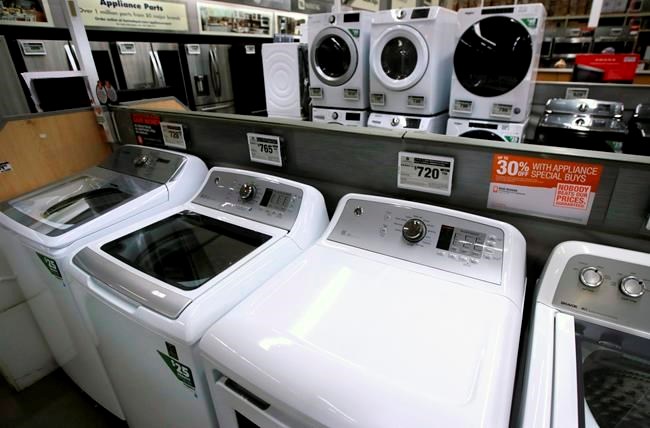The federal government's plan to tighten energy efficiency standards on home appliances could lead to fewer models, longer wait times and higher costs, according to an industry group.
A directive to make the Energy Star certification mandatory for all new home appliances starting in 2022 was included in a mandate letter to the natural resources minister in 2019, and the department is now in the process of developing the regulations.
In an online presentation on the issue obtained by The Canadian Press, the department said the more stringent standards would reduce energy use and greenhouse gas emissions and lead to cost savings for consumers over the lifespan of an appliance.
For example, a new clothes dryer would cost roughly $70 more, but would lead to nearly $400 in total energy savings over the lifespan of the unit — providing a net benefit of almost $330.
According to the Association of Home Appliance Manufacturers Canada, which provided the government presentation to The Canadian Press, the industry is already struggling with pandemic-related shortages due to COVID-19 shutdowns and a dearth of some materials, including semiconductors, resins and certain types of metals.
Making the Energy Star label a requirement by next year would only worsen the existing appliance shortfall, said Meagan Hatch, the group's director of government relations.
"It's going to be a big shock," said Hatch. "It's certainly going to impact the number of models that are available to Canadians."
The new regulations could remove most entry-level models from store shelves and force consumers to choose from a smaller selection of more expensive washers, dryers, refrigerators, freezers and dishwashers, she said.
For example, refrigerators with freezers on the top or top-load washing machines may be harder to find or off the market altogether, Hatch said.
According to the industry group's data, more than 70 per cent of dryer and freezer models on the market today could be "at risk" under the new energy efficiency standards, while more than 30 per cent of fridges and clothes washers could also fail to meet the cut. Only about 12 per cent of existing dishwasher models wouldn't meet the new regulations.
Meanwhile, the association is calling on Ottawa to work with the Biden administration to harmonize energy efficiency regulations on both sides of the border.
An executive order signed by the U.S. president earlier this year committed to an "energy conservation program for appliance standards."
"The Canadian marketplace is very small," Hatch said. "What we need is harmonization because it is one marketplace, and the Biden administration has indicated that it's going to set new energy efficiency rules as well."
This report by The Canadian Press was first published May 19, 2021.
Brett Bundale, The Canadian Press



